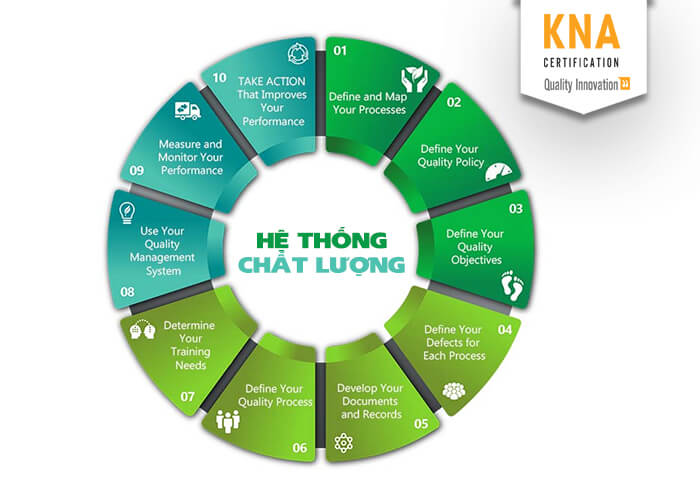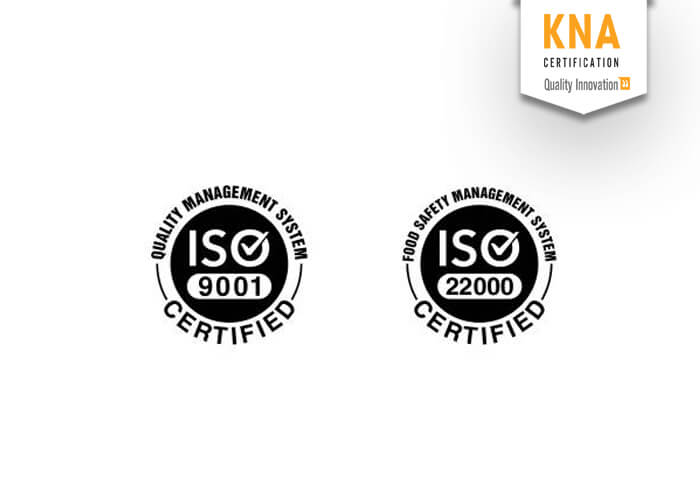What does the quality management system include?
Quality Management System (QMS) plays a crucial role in ensuring the quality of products and services for an organization. This system is applied across various industries, from manufacturing to services, from healthcare to information technology. In this article, we will explore 'What does the Quality Management System include?'
What does the Quality Management System include?
Policies and Quality Objectives:
These are guiding documents that establish the quality criteria for the organization. Quality policies define the organization's commitment to quality and provide a legal framework for implementing the Quality Management System. Quality objectives are the results that the organization aims to achieve.
Processes and Procedures:
The Quality Management System comprises processes and procedures that the organization establishes to ensure that work is performed consistently and reliably. Processes include specific steps and guidelines for executing quality activities.
Roles and Responsibilities:
The Quality Management System clearly outlines the roles and responsibilities of individuals within the organization. This enhances accountability and defines the necessary resources to ensure quality.
Document Control:
The Quality Management System requires the management of documents, involving their creation, classification, storage, and protection of essential documents related to quality. This ensures the integrity and availability of information relevant to processes and products.

What does the Quality Management System include?
Inspection and Evaluation:
The Quality Management System requires conducting inspections and evaluations to measure performance and identify improvement opportunities. This involves using methods such as sample testing, risk management, and data analysis to assess the quality and performance of processes and products.
Control of Input Quality:
The Quality Management System provides regulations and standards to ensure the quality of raw materials and input components. This ensures that only high-quality and suitable materials are used in the production process or service delivery.
Control of Output Quality:
The Quality Management System establishes processes and standards to ensure the quality of the final product or service. This ensures that the product or service meets quality requirements and customer expectations.
SOME STANDARDS RELATED TO QUALITY MANAGEMENT SYSTEM (QMS)
Several international standards set direct requirements for the Quality Management System. Here are some common standards:
ISO 9001 Standard: This is the most widely recognized global quality management standard. ISO 9001 sets requirements for the Quality Management System, focusing on customer satisfaction, continuous improvement, and adherence to quality processes.
ISO 13485 Standard: This is a quality management standard for the medical industry. ISO 13485 specifies requirements for medical device manufacturers and related services to ensure compliance with safety and effectiveness regulations in this field.
ISO/IEC 17025 Standard: This is a quality management standard applicable to laboratories and testing organizations. It sets requirements for the technical competence, accuracy, and reliability of measurements and tests conducted in a laboratory.
ISO 22000 Standard: This is a quality management standard in the food industry. ISO 22000 controls risks, hazards, and food production processes to ensure safety for consumers.
AS9100 Standard: This is a quality management standard for the aerospace and space industry. AS9100 sets strict requirements to ensure safety, quality, and compliance with regulations in the design, development, and production of products and services in the aerospace sector.
- ….

Compilation of Some Quality Management System Standards
These international standards are developed by the International Organization for Standardization (ISO) and other national organizations. They are widely applied globally and provide benefits to organizations in identifying, implementing, and improving their quality management systems.
Compliance with these standards not only helps organizations achieve high quality, enhance customer confidence but also ensures sustainability and compliance with legal regulations in the corresponding industries.
However, the decision to apply a specific standard for the quality management system depends on the industry, local requirements, and the organization's objectives. For each industry and organization, understanding and applying the appropriate quality management standards are crucial to ensuring success and effective competition in the international market.
Hopefully, after reading this article, your business has gained some understanding of 'What does the Quality Management System include?' To receive guidance on building a quality management system according to international standards, please contact KNA CERT at Hotline: 0968.038.122 or Email: salesmanager@knacert.com.






